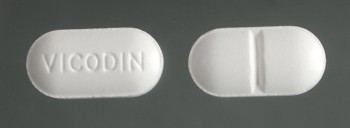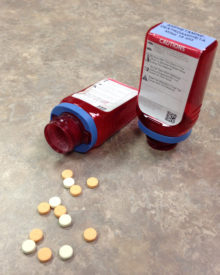Gov. Nathan Deal acted wisely last week in vetoing SB 125, which would have given physician assistants the right to independently prescribe hydrocodone. This dangerous opioid drug — which is used for pain relief in children, adolescents and adults — is at the heart of an increasing abuse-and-addiction epidemic. The Georgia Chapter of the American Academy of Pediatrics strongly opposed this ill-conceived bill, and we voiced our concerns throughout the legislative process.

When SB 125 was introduced, it mentioned “any hydrocodone compound product,” which would include syrups as well as pills and tablets, and stated that the prescription would be limited to a 5-day supply. Pediatricians and others voiced concerns about including children and teenagers, and proponents of the bill modified it to limit prescriptions to no more than 300 milligrams or 30 tablets for adults, and no more than 100 milligrams or 30 pills for patients under 18. This change was clearly done to appease our concerns, but it did not. Prescribing 30 pills or 100 milligrams (in a syrup) still presents a significant risk of someone diverting the drug for abuse and addiction.
The stark reality is this: Hydrocodone is the prescription opioid drug most commonly abused by adolescents. Opioid abuse has been a rapidly growing problem over the last decade in this population, reaching nearly epidemic proportions in some areas. Georgia is no exception. The problem also permeates adult populations as well.
Proponents of the bill said prescribing hydrocodone to children and teens is necessary to treat acute pain from broken bones in rural settings. However, there are other safe, established and reasonable alternatives to hydrocodone for children and adolescents. In fact, the gold standard of care for children and adolescents with muscular- skeletal issues is management with high-dose acetaminophen (Tylenol) or ibuprofen. If in the face of this therapy, the child still has intractable pain, he or she should be seen and treated by a physician. Hydrocodone is contraindicated in acute situations without physician evaluation. Therefore, the notion that rural physician assistants, operating independently from their supervising physician, need hydrocodone to adequately treat pain in children and adolescents is patently false.

Moreover, opioids have a different physiological effect in adolescents than in adults. Because children are rapid metabolizers as compared to adults, studies show the drug causes a greater decrease in brain cells in them than in adults, which results in potentially permanent lower levels of cognitive functioning.
Even the manufacturers of hydrocodone acknowledge it may not be safe in children/adolescents. The package insert in one of the most common brands of hydrocodone states “the safety and effectiveness in pediatric patients has not been established.” When it comes to a safe standard for our youth, it doesn’t get any clearer than that.
The bill’s proponents also touted SB 125 as being helpful and needed for rural health care in our state. That’s nonsense.
The children of rural Georgia deserve and should have the same standard of care as the rest of our state. That standard of care is the rare use of hydrocodone products, under a physician’s supervision, not increased use under less supervision. There are nearly 4,700 PAs licensed in Georgia today, and as the governor correctly pointed out in his veto message, the sheer number of additional prescriptions of hydrocodone such a bill would allow is staggering. In the face of the opioid crisis that we have yet to get under control, it simply makes no sense to add thousands more prescribers of this drug in Georgia.
We want to be clear that our opinion on this matter is not meant in any way to diminish our high regard and respect for physician assistants, their overall competency and their valuable role as health care providers in our state. However, prescribing opioids to adults and adolescents is a rapidly diminishing practice as we become more aware of the dangers these drugs pose.

We commend Gov. Deal for turning away this misguided attempt at “improving” our health care system and for staying focused on making sensible strides to combat the opioid abuse crisis.
Dr. Ben Spitalnick is a Savannah pediatrician and is president of the Georgia Chapter of the American Academy of Pediatrics.

